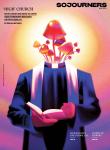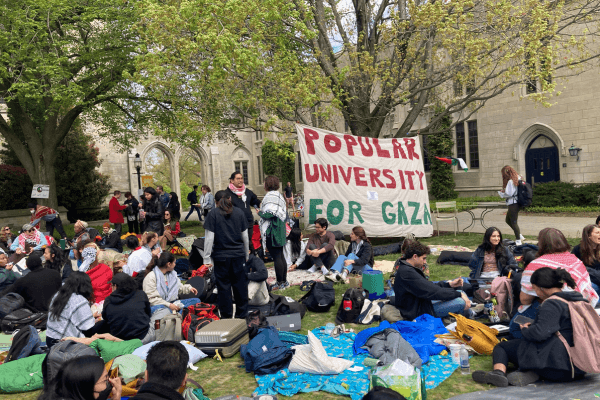The need for lament could not be more urgent. The painful reality of the loss of more than 100,000 American lives requires the response of lament. However, a genuine corporate lament seems to have eluded many Americans, even those in the church. Lament is a biblical practice that has been long-neglected in the American church.
A simple, working definition of lament is the appropriate response to the reality of brokenness and suffering in the world. Lament has many expressions, including individual lament, corporate lament, and even a funeral dirge. Lament in the Old Testament requires a realistic self-perception that there is something wrong with the world.
In a typical worship service on a Sunday morning, the absence of lament is glaringly evident. Different studies show that lament as a spiritual practice is intentionally avoided or ignored. The absence of lament results in a church unable to acknowledge or address the reality of suffering and injustice in the world. Instead of an appropriate lament for troubled times, the church offers platitudes and trite affirmations that does not reflect reality.
In the book of Lamentations, the nation of Israel was enduring great suffering. While suffering the great tragedy of exile, death, and destruction, the people of God clung to their status as exceptional people. They assumed that their exceptionalism was an earned status by Israel, when it was actually an endowed status by God. This delusion of an earned exceptionalism had to be confronted before genuine lament could be offered.
Even as the United States suffers the great tragedy of sickness, death, and decline, we continue to cling to the myth of American exceptionalism. The embedded narrative of American exceptionalism and triumphalism make it particularly difficulty for the American church to practice the spiritual discipline of lament. These narratives prevent us from acknowledging the reality of suffering in the world. Exceptional people do not suffer. Exceptional people don’t get sick and die. Exceptional people do not struggle with an economic downturn. Exceptional people will inevitably triumph.
This delusion of exceptionalism leads to dysfunctional, almost sociopathic behavior. An exceptional person does not need to wear a mask. Exceptional people need not adhere to CDC guidelines for large gatherings. Exceptional people can self-diagnose and self-administer medication, even if it has no value and could even be harmful. Exceptional people can disconnect from the larger global scientific community. Exceptional people can meet in large church gatherings because God will protect us. Exceptional people do not lament.
But the church is called to lament. The church is called to a realistic examination of the current reality and call for the truth to be told in the public sphere. The church is called to lament because our country often fails to see the reality of suffering in the world.
So we lament. Not because we are exceptional people whose lamentations will be heard by a God who is at our beck and call and hears only us. Not because lament will solve all our problems. But because lament is the appropriate response of God’s people to the reality of suffering in the world.
Through North Park Theological Seminary, I have had the great privilege of teaching a class at Stateville Correctional Center for the last three years. I have taught, been taught by, and lamented alongside some of the most incredible spiritual leaders and servants I have ever met. COVID-19 has taken two of my students who were incarcerated at Stateville. During this pandemic, I have had no other option but to stay in a place of lament as my community grieves the loss of our dear brothers. This lament leaves no room for any sense of exceptionalism and triumphalism. There is only pain and suffering of loss. This grief and lament may pass but my delusion of an exceptional and triumphant Christian nation that cares for the very least of my brothers and my sisters has been forever shattered. The death of this delusion requires no lament. But the death of 100,000+ lives, a list that includes two of my students demands that the church laments.
Got something to say about what you're reading? We value your feedback!








